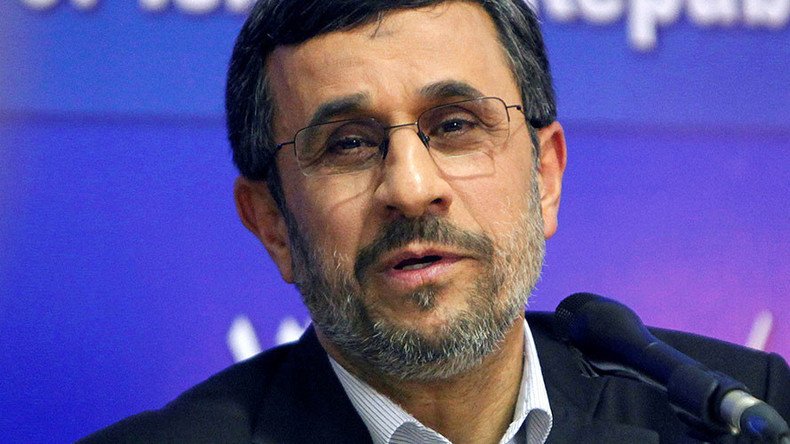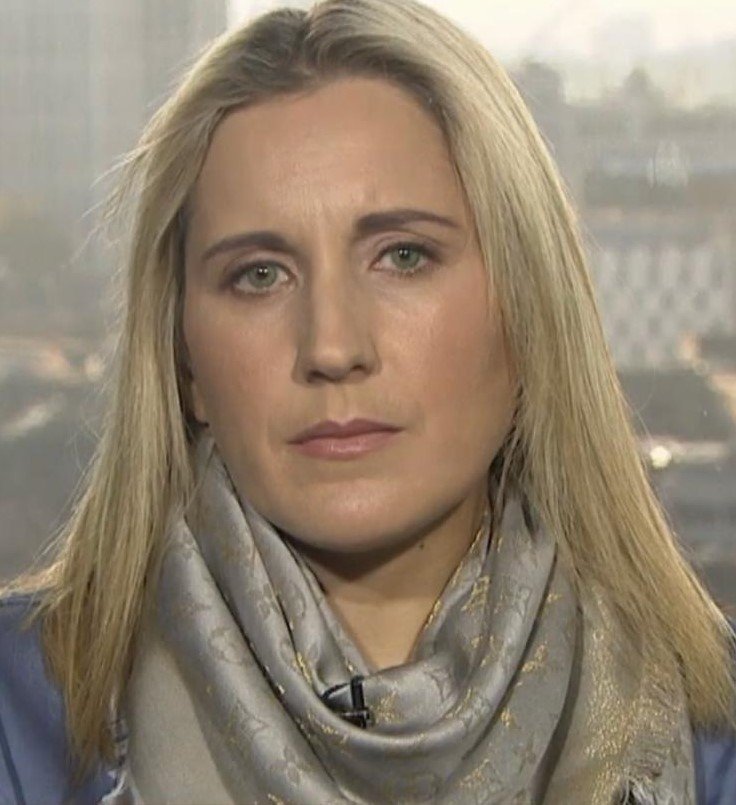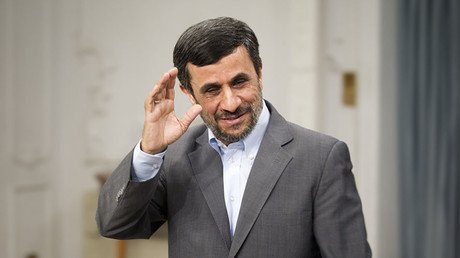The Ahmadinejad effect: West & Iran still lost in translation decades into the Revolution

Iran’s presidential race has been marred by signs of ideological exhaustion. But can we really read into Iran’s political field through the lens of Western politics and not fail to recognize the singularity of its system of governance?
He came, he registered, he was rejected …
Western media’s obsession with Iran hit fever pitch this April after former President Mahmoud Ahmadinejad broke protocol by registering his claim to the presidency, months after Ayatollah Ali Khamenei advised the veteran politician not to. ‘Treason!’ they cried. ‘The Republic has been breached,’ they argued from their newsrooms. Within days of the news hitting the stands, pundits went to the barricades selling the Islamic Republic down the river over one unexpected candidacy.
As Shakespeare once offered: “Much ado about nothing.”
The liberal capitalist system is the root of all problems. #PressConference
— Mahmoud Ahmadinejad (@Ahmadinejad1956) April 5, 2017
Yes, I will grant you that Ahmadinejad's decision to enter Iran’s presidential race days after he confirmed to the press that he would not, positing instead that he would throw his weight and political credential behind Hamid Baghaei, was somewhat unexpected. But then again we are talking politics here. Politicians are not exactly known to be candid when it comes to political strategizing, especially not on the eve of an election.
But let’s put this idea aside for a moment.
Rather than consider the possibility of a political play, a move aimed at promoting certain dynamics so as to achieve predetermined goals within the framework of Iran’s presidential race, the Western mainstream immediately read Ahmadinejad’s decision as both a declaration of war against the leadership, and, more specifically, a case of lese majeste against Ayatollah Ali Khamenei.
My question is why? Why assume anything when Western capitals - never mind the Western press - have yet to grasp Iran’s system of governance?
While I realize that the Press - note here the colonial capital - would love nothing more but to report on Iran’s institutional meltdown, preferably in favor of its friendlies, I’m afraid eagerness to find faults in Iran’s institutional and political armor led the West to project too much of its psychosis to be accurate.
Iran cannot, and should not, be defined according to a democratic Western paradigm. And though Iran is indeed a fully-fledged democracy, its system of governance places its republic somewhat beyond, and altogether within.
Confused? I would expect anyone to be. Iran’s Islamic Republic is an island onto itself; the one nation to have managed to rise a new democratic path while refusing to play within the Western democratic mold. Indeed, one could argue that Iran’s main fault was to invent itself independent from the pack in the first place. If the West may have tolerated the fall of the Shah to a Republican system, it was not willing to lose to Resistance.
If I was to rationalize Iran’s system of governance, which system you will need to grasp should you carry any hope of understanding Iran’s presidential race, I would say that the Governance of the Jurist (aka Wilayat al-Faqih) exists in resistance against injustice through the implementation of Islam’s traditions.
Note here that I am not selling Iran’s system, I am merely mapping it out. From where I’m sitting I can hear the Liberal hyenas howling at the moon. ‘Move on already, 1979 happened and there is not putting back that genie in any bottle!’
Iran’s 1979 Revolution saw not just the fall of an abject tyrant, but the birth of a popular movement that hungered for a return of the faqih, the jurists. The idea was to return Islam as THE anchor upon which and around state institutions are weaved. Whether or not the world agreed with such a system was of little consequence; it is still of little consequence.
The trick here is to simply accept that before popular will one must bow - not so much quantify against.
Under the Governance of the Jurist authority lies with the religious leadership, as personified today by Ayatollah Ali Khamenei. When I say authority you need to also read allegiance and loyalty. Iran’s Islamic Republic is the Leadership, and the Leadership is the Islamic Republic. Within this dynamic there could be no displacement of authority, or stature.
Now back to Mr Ahmadinejad’s presidential bid and the fracture the West rose from the ink of its pens. Allow me to burst your bubble. Ahmadinejad did not betray! He did not defy and he certainly did not harm the Leadership by playing dissident. What he did - rather astutely, if I may add - is to play his political cards in the pursuit of goals the mainstream media completely missed.
Yes, the subtleties of Iran’s political games still escape the West - what a shocker!
So what did exactly happen and, more importantly, why?
For starters, I would say that Mr. Ahmadinejad never intended to sit through the presidential race. So that we can settle the little matter of betrayal once and for all allow me to offer the following: Ayatollah Khamenei only ever posited his advice. There was no decree and no official command issued against the former president - that would go against Iran’s democratic principles.
Let us drop the silly conspiracy theory for a moment to consider the rational.
Who are Iran’s two main contenders? And more to the point, whose name Mr Ahmadinejad’s little political outing put into focus?
Today, the presidential race really exists between Seyed Ibrahim Raisi and President Hassan Rouhani.
Formerly an unknown protagonist - on the international scene anyway - Seyed Raisi has risen through the polls with a speed that signals a clear shift in political direction within not only Iran’s elite, but the people.
And while Mr Rouhani remains a strong favorite of the West in that his tone is believed to be more suited to the times, Ahmadinejad’s bold move allowed for a space to be created within the political map so that Seyed Raisi, a rallying figure cutting across the demographics, could stand out in stark relief.
Who’s playing who now?
The statements, views and opinions expressed in this column are solely those of the author and do not necessarily represent those of RT.














